Wellbeing
Nicola Smith - Assistant Principal & Wellbeing Coordinator

Wellbeing
Nicola Smith - Assistant Principal & Wellbeing Coordinator
Child Safe Standards and Kids Helpline
As part of our obligation to the new Victorian Child Safe Standards (see below), we frequently talk to our students about ways we can equip students with the knowledge, skills and awareness to feel safe and ask for help (Child Safe Standard 8). Our Respectful Relationships program focuses on educating students to identify Help Seeking strategies and their Trusted Adults.
For e-Safety week, all students will explore the Kids Helpline website (https://kidshelpline.com.au/) and bookmark this on their devices. The website has the direct call number for Kids Helpline as well as an online chat function that is very easy for children to navigate. We recommend spending some time together at home to explore the resources together. The website includes an interactive ‘feelings’ page that navigates children to a number of relevant stories to support different emotions and experiences.
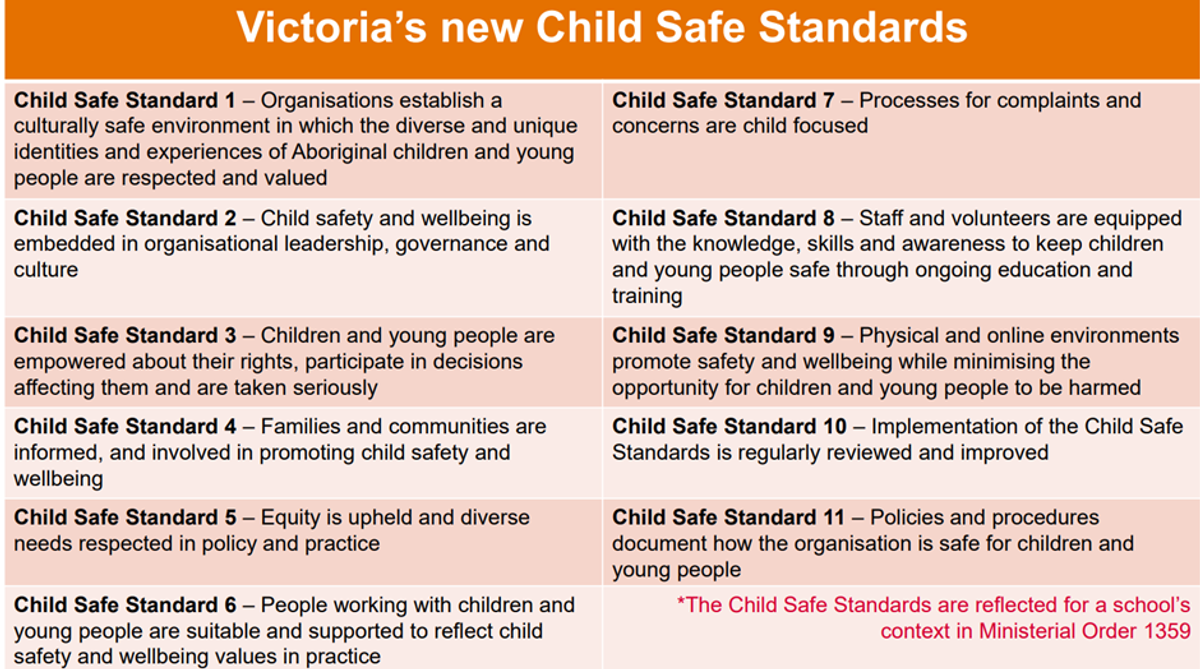

IDAHOBIT day in the EPS community
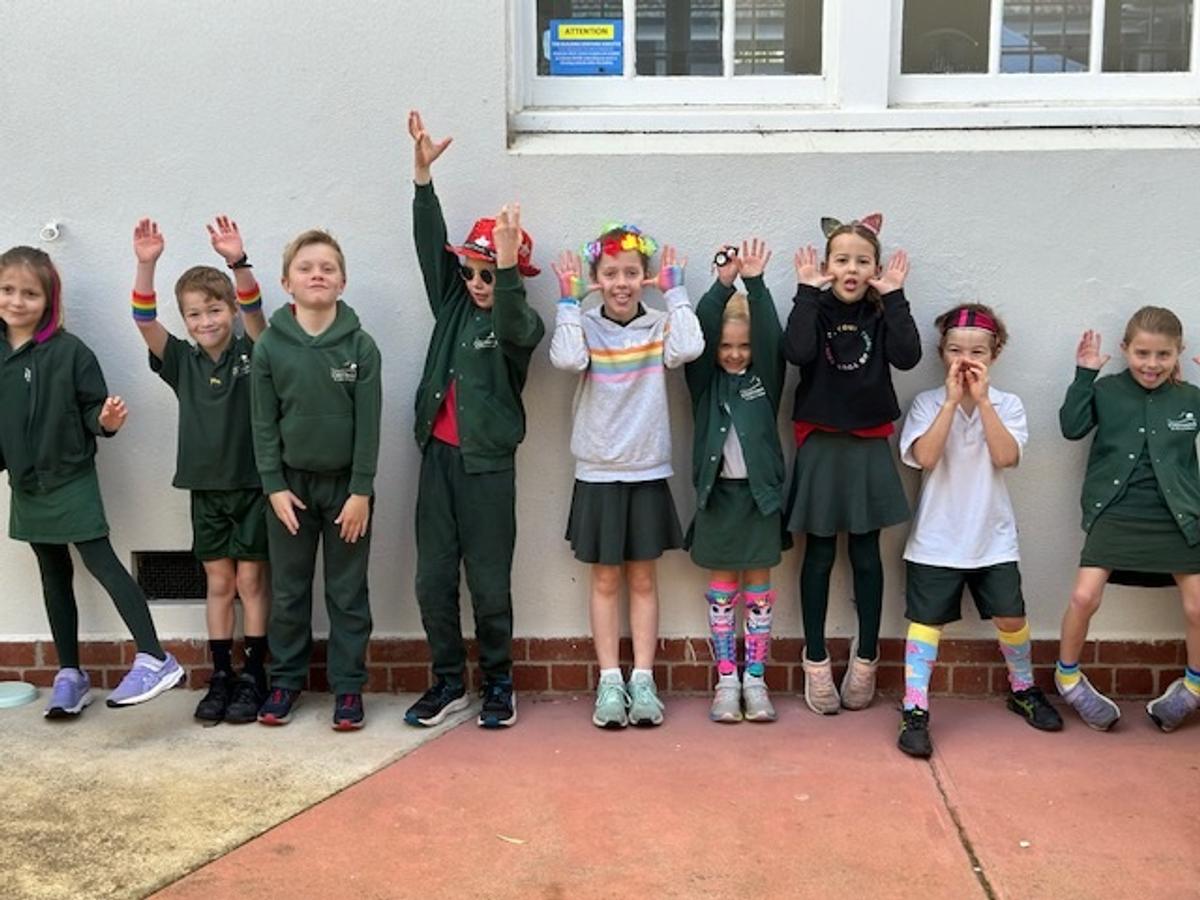

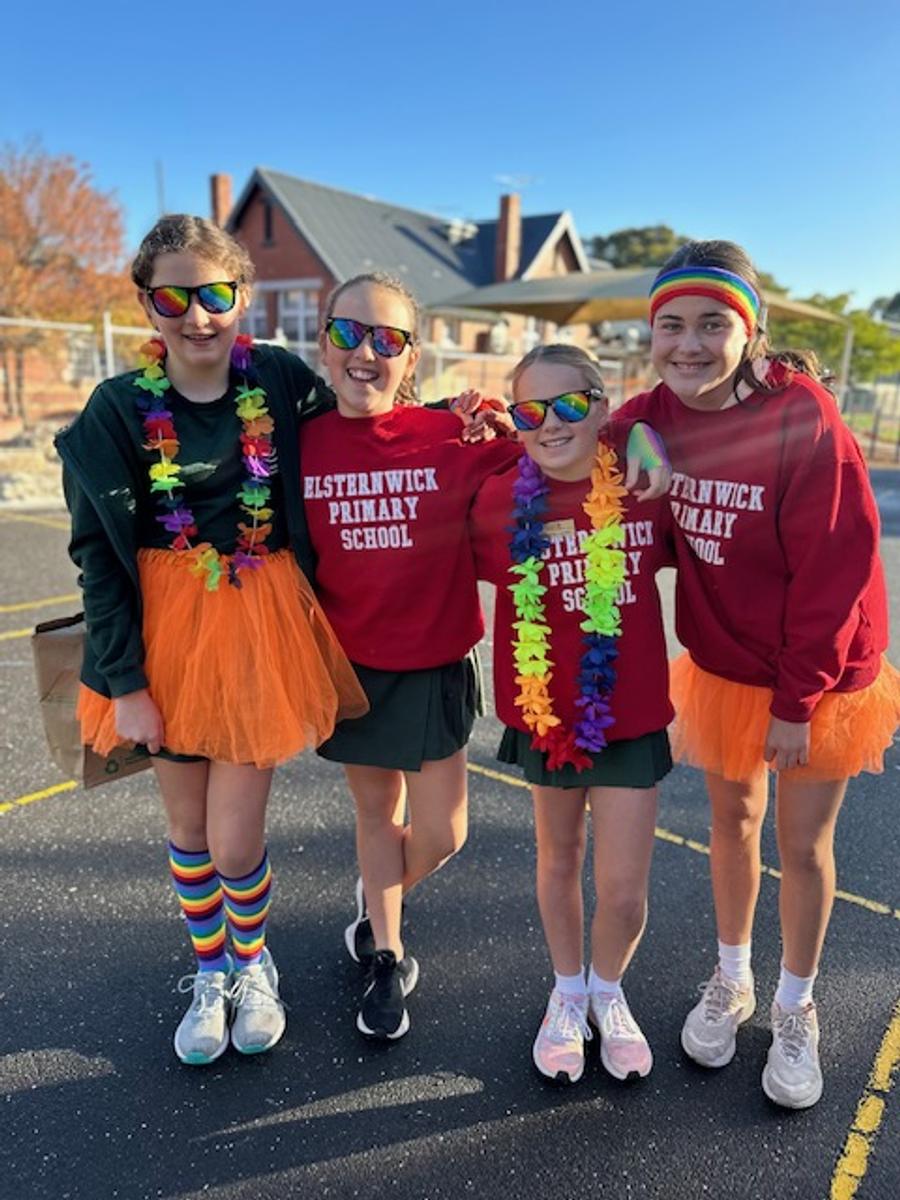



“We were so happy to see so many students get behind and support by wearing rainbow colours. Our highlights of the day were going around to classes to hand out prizes for best dressed and celebrating our differences with a fun lunchtime disco that all year levels enjoyed.”
– by Maia, Remi, Sophia, and Millie, Year 6 Student Wellbeing Leaders
Achievement Program
Exciting news! Our school has been awarded Victorian Government recognition for Sun Protection & Safe Environments in the Achievement Program. This means we have successfully demonstrated how we are meeting best practices for this health area. We are very proud of this recognition and are particularly proud of our SunSmart policy improvements, auditing and updating protective equipment, creating a welcoming entry space for visitors, and meeting all areas for best practices in providing a safe environment for students, staff, and the school community. The Achievement Program is a free health and well-being initiative for schools. More information about the program can be found here. Our next focus area is Mental Health & Wellbeing.
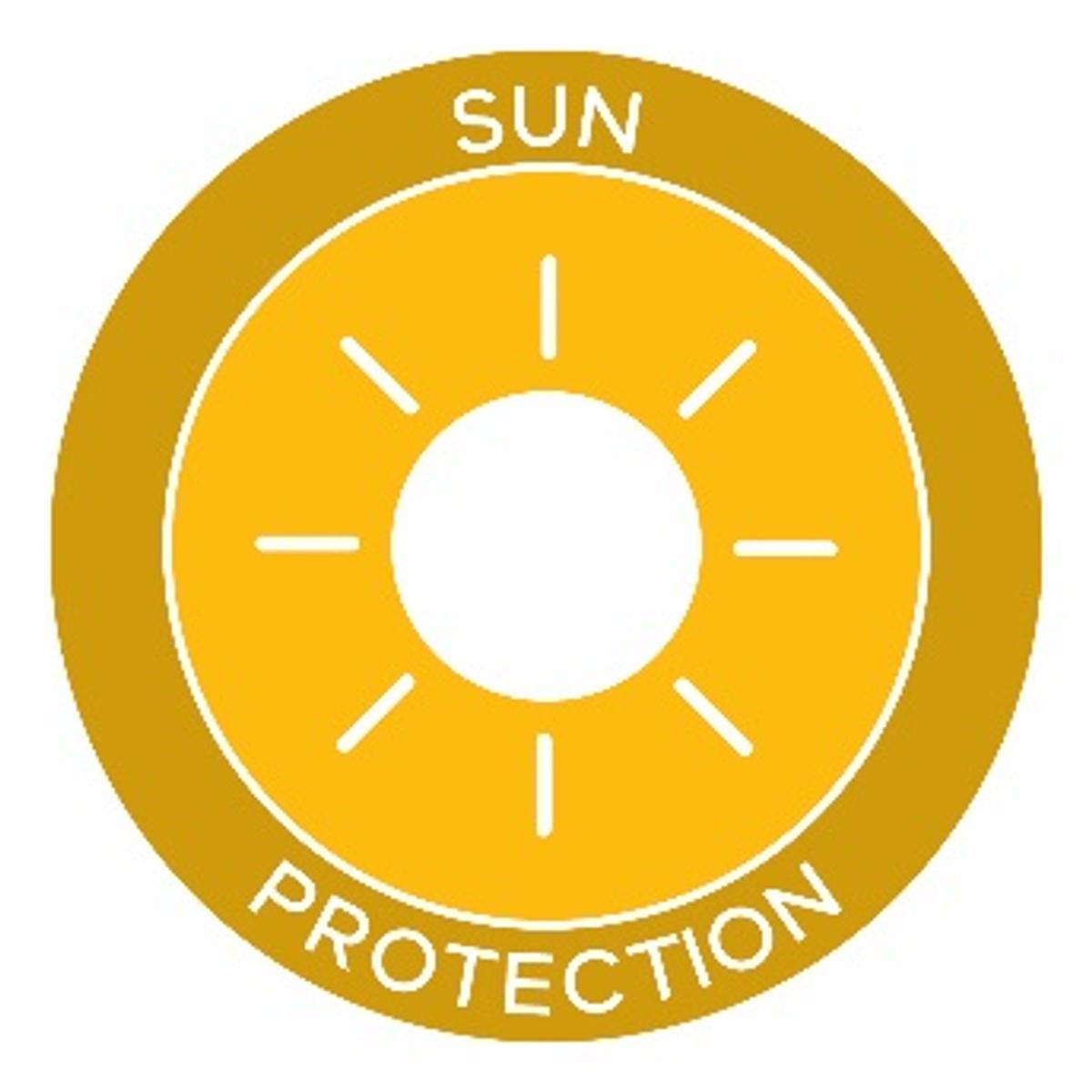

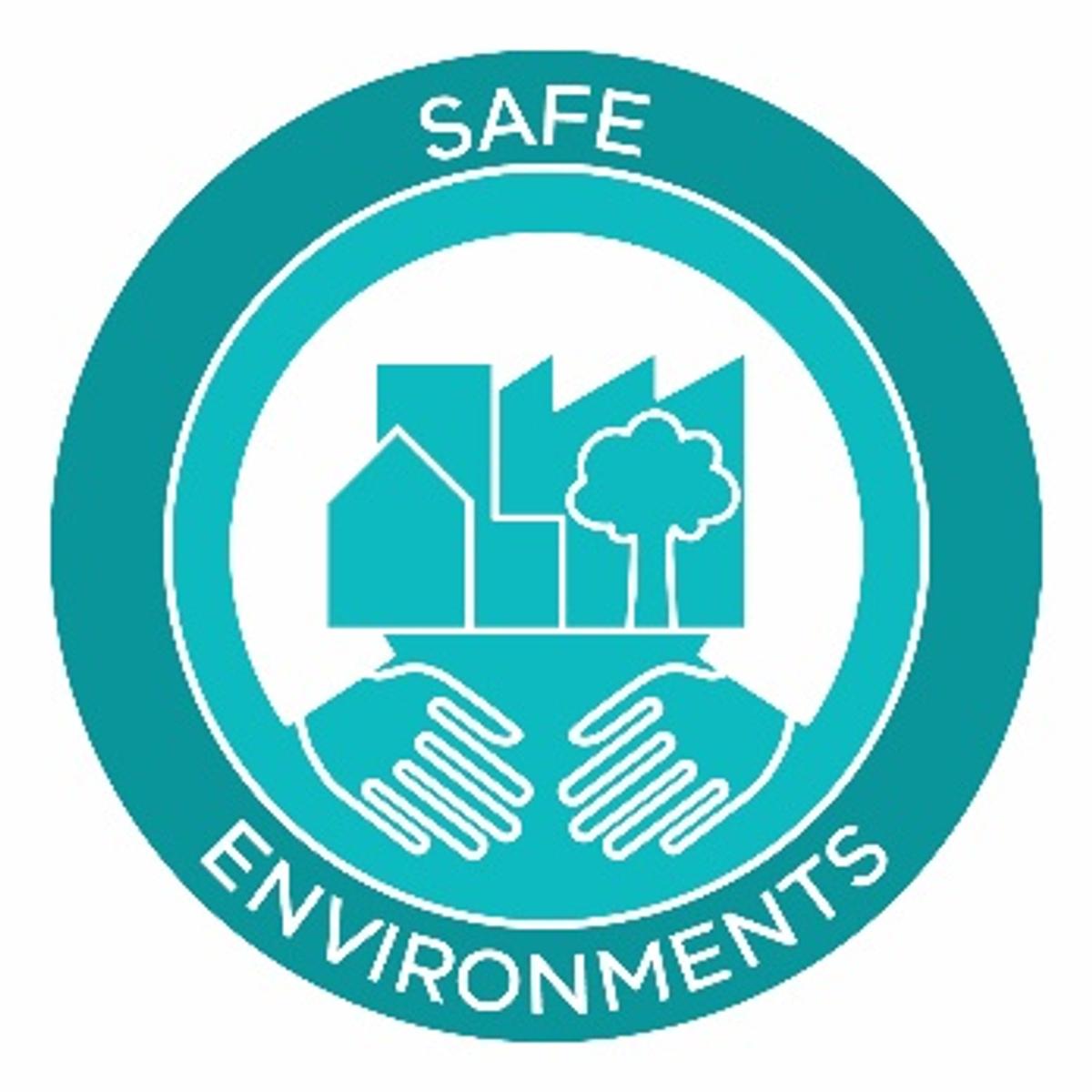

Bayside Youth Awards - Molly D
We are so proud of Molly D for her recent nomination in the leadership category at the Bayside Youth Awards. Molly received this nomination for her initiative and leadership in taking ownership of planning, designing, gathering news stories, and writing up our EPS student newsletter. She believes that students should get their own line of communication just as parents do and aims to create a safe space for all our students to share their voice, interests, and achievements.
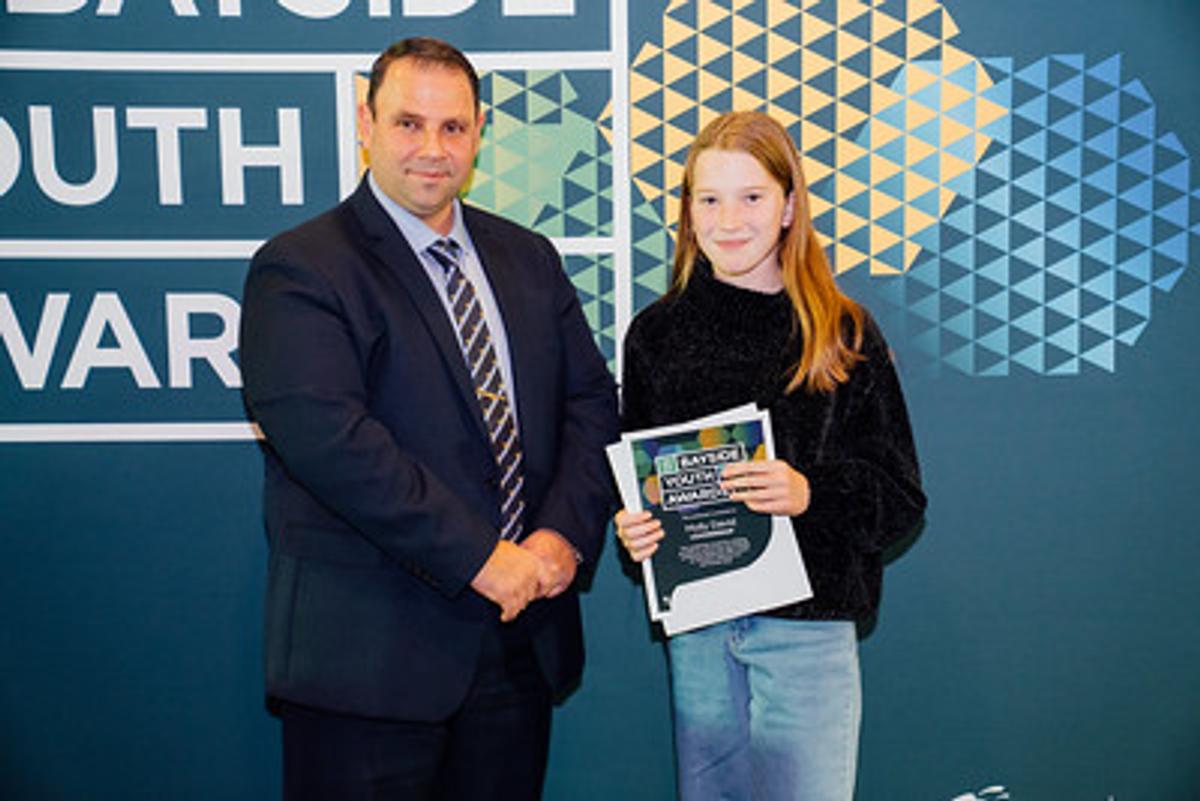

POLICY UPDATES
Communication Guidelines
Our EPS Communication Guidelines have recently been reviewed by our Education Subcommittee. The guidelines explain how Elsternwick Primary School proposes to manage common inquiries from parents and carers. Elsternwick Primary School understands the importance of providing helpful and timely responses to common inquiries from parents and carers. EPS encourages parents/carers to actively engage with the school. This relationship is vital to maintaining a positive and productive school community and is an important part of a student’s learning and wellbeing. The full policy will be available on our website shortly, with a summary of the Communication Directory below.
COMMUNICATION DIRECTORY
| Talking to… | Talking about… | For Example… | How to Communicate… | Response Time… |
| School Office |
|
|
|
|
| School Council |
|
|
|
|
| Parents/carers and Friends Association (PCA) |
|
|
|
|
| Class teacher |
|
|
|
|
| Grade team leader |
|
|
|
|
| Assistant Principal |
|
|
|
|
| Principal |
|
|
|
|
How to find our full list of policies:
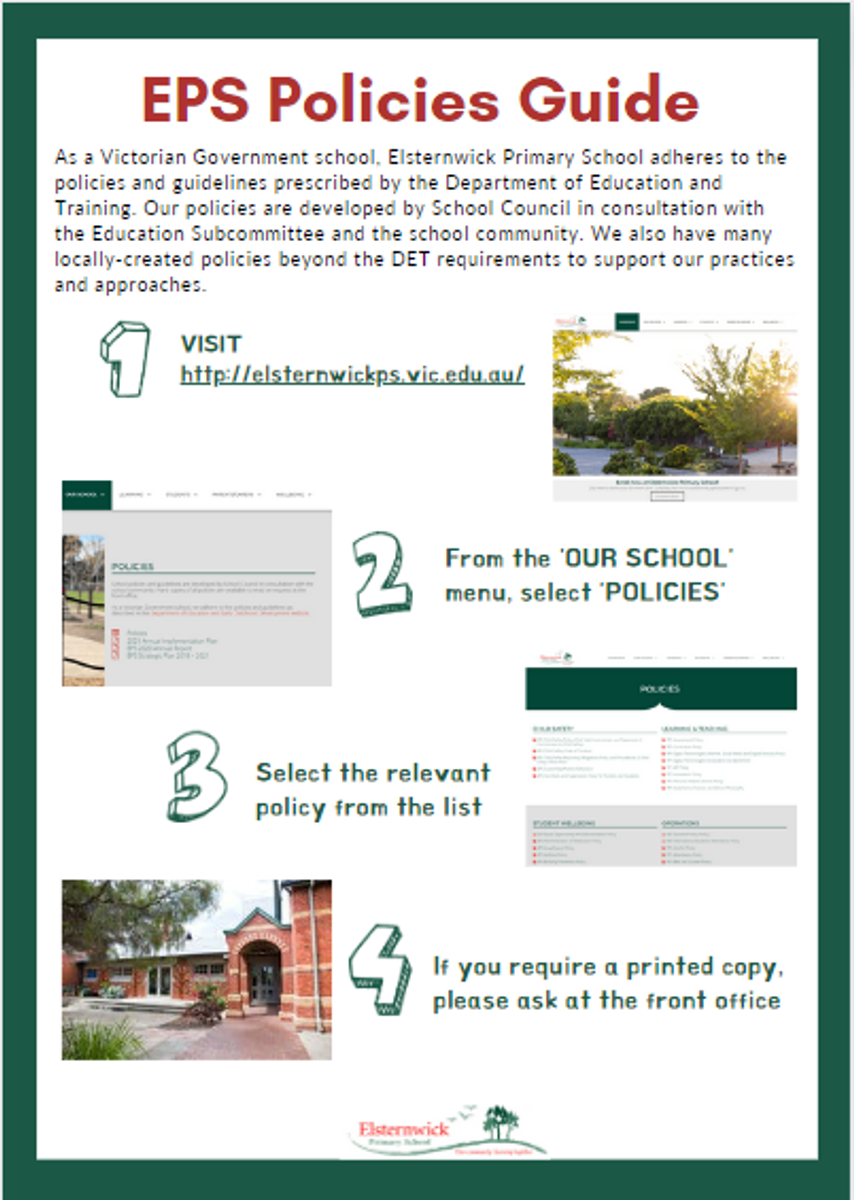

Warm regards,
Nicola Smith and Morgan Ili
Wellbeing team